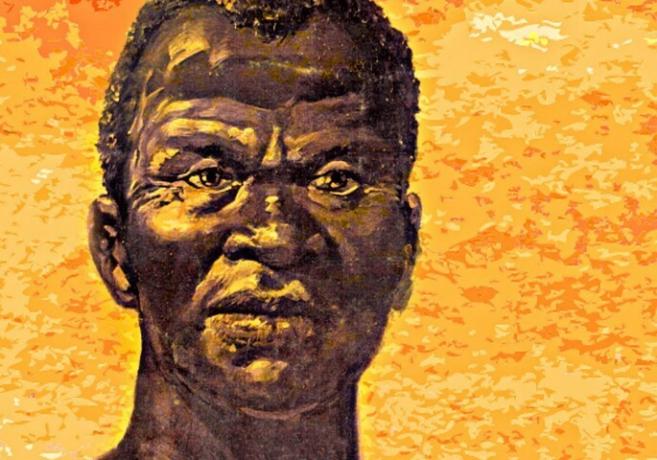Gregory of Matos he was one of the greatest Brazilian poets of the Baroque period. In addition to being a poet, Gregório was a lawyer during the colonial period.
He is known as the “Mouth of Hell”, being famous for his satirical sonnets, from which he often attacks the Bahian society of the time.
Owner of a rebellious personality, Gregory criticized several aspects of society, government and the Catholic Church. For this reason, he was persecuted by the Inquisition and sentenced to exile in Angola in the year 1694.
Biography

Gregório de Matos Guerra was born on December 23, 1636 in the city of Salvador, Bahia.
Son of Maria da Guerra and Gregório de Matos, he belonged to a wealthy family whose father was a Portuguese nobleman.
Gregório studied at the Colégio dos Jesuitas in Bahia and, in 1691, graduated in Law in Coimbra, Portugal.
He worked as a judge, however, his great passion was literature. He returned to Brazil, holding the positions of vicar general and chief treasurer, however, he was removed for refusing to wear a cassock.
He died at the age of 59 on November 26, 1696, in the city of Recife. His reason for death is linked to a fever he contracted when he was sentenced to exile in Angola.
Works and Features
The work of Gregório de Matos brings together more than 700 texts of lyrical, satirical, erotic and religious poems.
Inserted in the Baroque movement, they bring together picturesque word games, a variety of rhymes, in addition to a popular language and terms from the Tupi language and other African languages.
However, Gregory did not publish his poems in life, having much controversy about the authorship of some writings.
Initially, some of his poems were published by historian Francisco Adolfo de Varnhagen, Viscount of Porto-Seguro, in the book "Florilégio da Poesia Brasileira" (1850) published in Lisbon.
Currently, we can find a large part of his work.
Learn more about Satire.
Poems by Gregório de Matos
To better understand the style and language of Gregório de Matos, read two of the poet's sonnets:
To the city of Bahia
“In every corner a great adviser.
who wants to rule us cabin, and came,
they don't know how to govern their kitchen,
and can rule the whole world.
At each door a frequent scout,
that the neighbor's life, and the neighbor's
search, listen, peek, and scan,
to take her to the Square, and to the Terreiro.
Many shameless mulattos,
brought by the feet of the noble men,
put in the palms all the mischief.
Stupendous usuries in the markets,
tall, those who don't steal, very poor,
and here is the city of Bahia.”
contemplating things in the world
“In this world it is richer, what more shaves:
Whoever is cleaner has more scale:
With his tongue the nobleman cuts off:
The biggest rogue always has a cape.
Show the rogue of the nobility the map:
Whoever has a hand to grasp, a quick climb;
Whoever speaks the least can, the more incredibly:
Whoever has money can be Pope.
The low flower is inculcated by Tulipa;
Cane in hand today, garlopa yesterday:
The more impartial is shown, the more it sucks.
For the empty rag troop the gut,
And I don't say more, because Muse agrees
In apa, epa, ipa, opa, upa.”
Read too:
- Baroque in Brazil
- Baroque Poetry
- The Language of Baroque
- Exercises on Baroque
Sentences by Gregório de Matos
- “What can it do to be silent, who is silent will never speak, what does it feel like? You will always feel, what you say!”.
- “If you are fire, how do you pass gently, if you are snow, how do you burn with bristle? But alas, that Love walked in thee prudent!”
- “I am the one who, years ago, I sang on my lyre, cursing Brazil's nastiness, vices, and mistakes”
- “However, if the sun ends, why did it rise? If the Light is so beautiful, why doesn't it last?”
- “The honest is poor, the idle triumphs, the incompetent rules.”
- “They justify themselves by lying with deceptive pretexts, and with feigned detours.”



